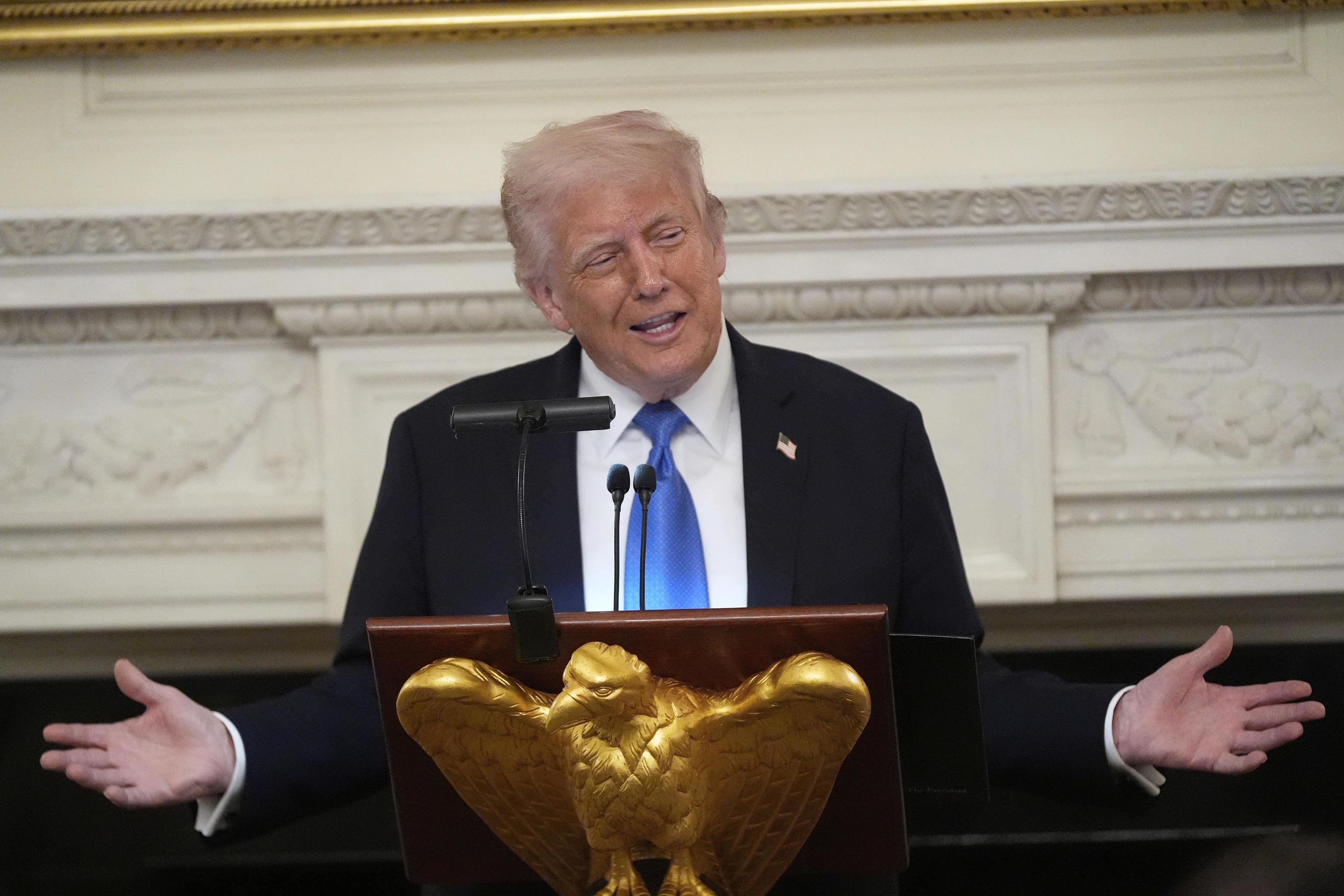"The viability of many research projects is in danger. We need Europe to take a step forward." This is the alarm raised by several Spanish scientists who have been affected by the decision of the Trump administration in the United States to abruptly cut funding to research groups abroad.
The National Institutes of Health (NIH), the public agency that has traditionally invested the most in biomedical research worldwide, has stopped funding groups located outside the US following the implementation of a new regulation citing reasons of "national security" and "improving transparency" to cut funds that, in many cases, had been granted to teams and institutions around the world for years.
The agency states that it will continue to collaborate with groups outside its borders but, in order to "better track how dollars are spent", from now on, teams interested in obtaining funding from the agency must directly sign a contract with the NIH. Collaboration through a US research group that, as was the case until now, established ties with other international groups, is no longer possible.
In practice, this change has suddenly halted research projects that relied on these funds to carry out key studies. "Since May 1, I have not received any money from the United States," laments Javier Martínez-Picado, leader of the Retrovirology and Clinical Studies Group at IrsiCaixa and one of those affected by the NIH's shift in direction.
Martínez-Picado received funding from the US agency for two significant projects aimed at better understanding HIV and finding a cure for the infection.
One of them, explains the researcher, "falls under what is called the Martin Delaney Collaboratories, an initiative that represents the world's largest investment in researching how HIV infection can be cured." In total, this project encompasses around $60 million annually distributed among six to eight research groups. "We are part of one of these groups. We have completed four years of the project, with one year remaining," explains the researcher, concerned about the continuity of a promising research line that has required significant time and resources.
The second affected project explores the use of various immunotherapies and genetic and cellular therapies, such as hematopoietic progenitor transplants, and their influence on HIV cure. "It is also a very important international project because we provided a fundamental aspect, the high-resolution molecular-level study and genomic techniques of what happens both before and after hematopoietic cell transplants, as well as before and after interrupting antiretroviral treatment."
Concern among researchers
"This is a blow to research. It affects 40% of the group's budget. It leaves us completely stranded," he says with concern. The same concern is expressed by another researcher from a top-level center who prefers not to disclose his name because he had just received funding for this year when the measure was announced. The project is planned to last several years, so he does not yet know what will happen in the future.
"There is a lot of uncertainty, but undoubtedly this will affect research at all levels. Many efforts had been made to make research increasingly international, to create research consortia reflecting diversity in terms of ethnic origin, lifestyles, etc. This represents a step backward."
Roderic Guigó, coordinator of the Bioinformatics and Genomics Program at the Center for Genomic Regulation in Barcelona (CRG), has also been affected by the abrupt NIH cuts. His main concern is what will happen to his participation in the GENCODE project to identify and classify all genetic features in the DNA of humans and mice and build with that information a map serving biomedical research. Guigó himself launched the initiative in 2003 during his time in the US, during which he had been receiving funding from the NIH.
"This project is considered an essential resource for biology research," Guigó points out, but "if nothing changes, we will be left without funding". This means that the fifth phase of the initiative is at risk because the group's contribution to the project is crucial. The team received over a million euros from the NIH.
All the researchers consulted agree that, regardless of the final outcome with the US agency, what has happened highlights the need for "Europe to take a step forward and make a commitment to research."
"Regardless of the current crisis, I believe that certain research projects of global importance, which generate resources for all researchers, should have funding that does not depend solely on the US," Guigó suggests, emphasizing that Europe in general and Spain in particular should participate more in funding projects like GENCODE. "It makes sense that, as an advanced country and continent, we contribute more to maintaining structures of global interest," he points out.
Martínez-Picado shares the same opinion: "From Spain and Europe, we must take responsibility," emphasizes the virologist, adding that, in his view, "we must be able to enhance our own research more and not be dependent on others".
Regarding the immediate solution to the problem they face, Martínez-Picado recalls that the affected projects are top-notch, "they were already evaluated and operational. I believe they should receive funding and be rescued automatically."
Those affected by the NIH cuts are currently trying to find solutions and are calling for assistance, whether through public funds or philanthropy, to mitigate the funding cuts. At the moment, they do not have clear answers.
